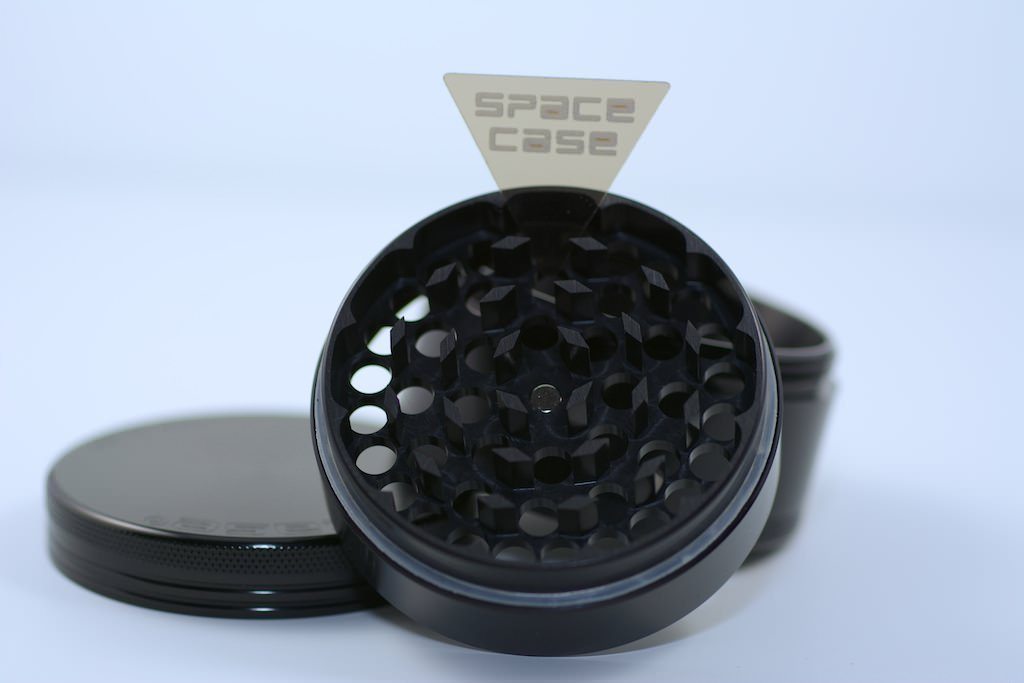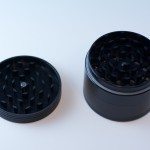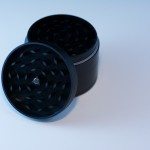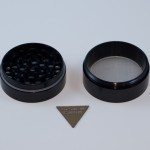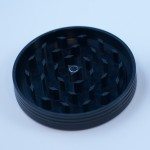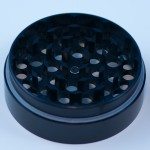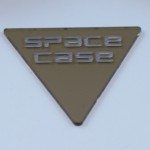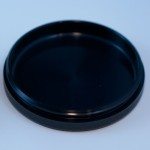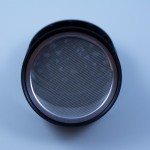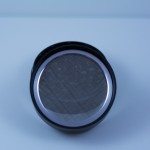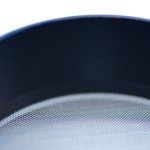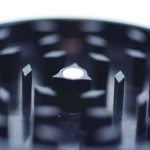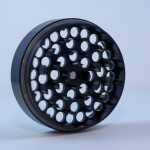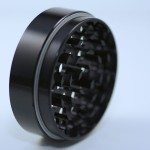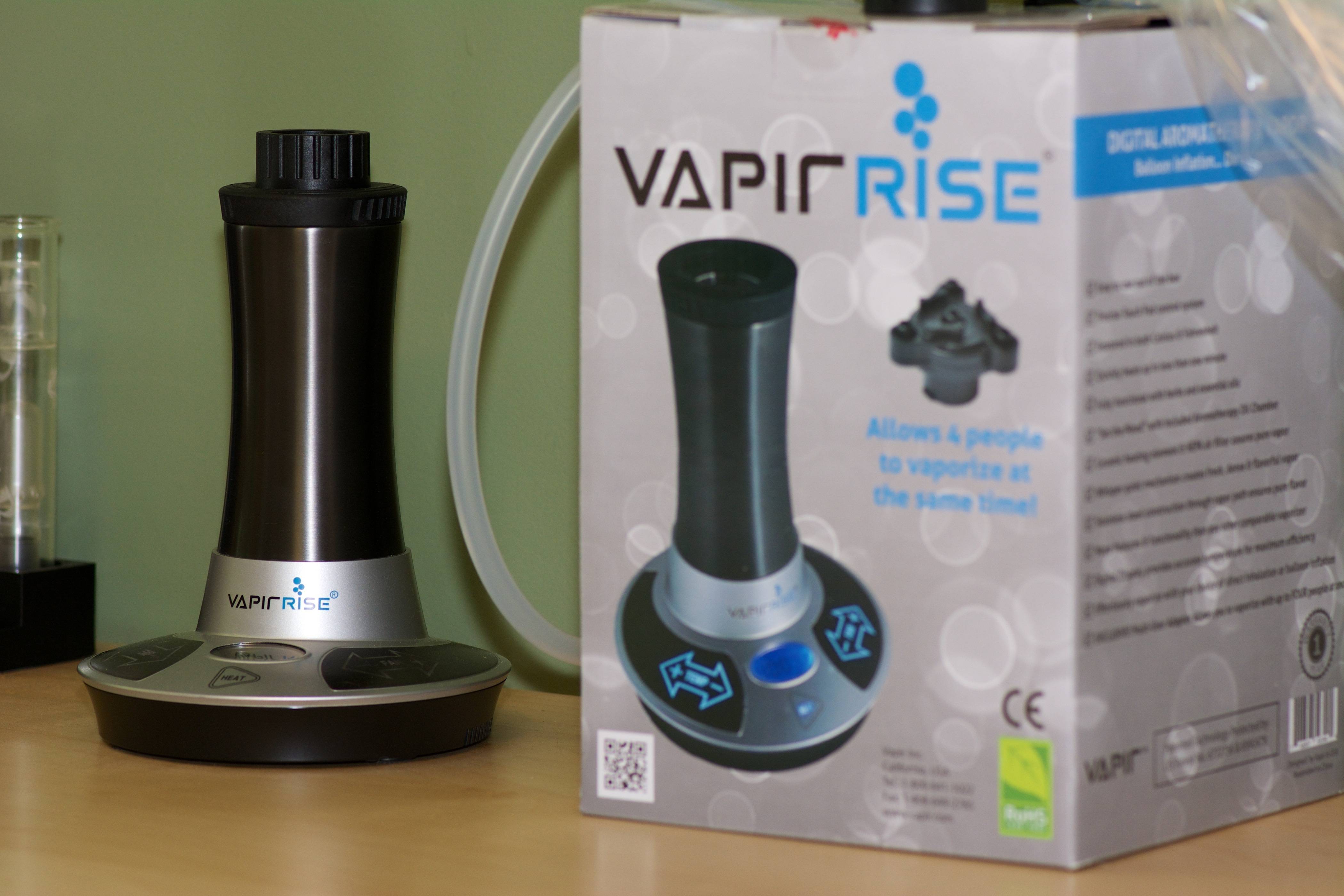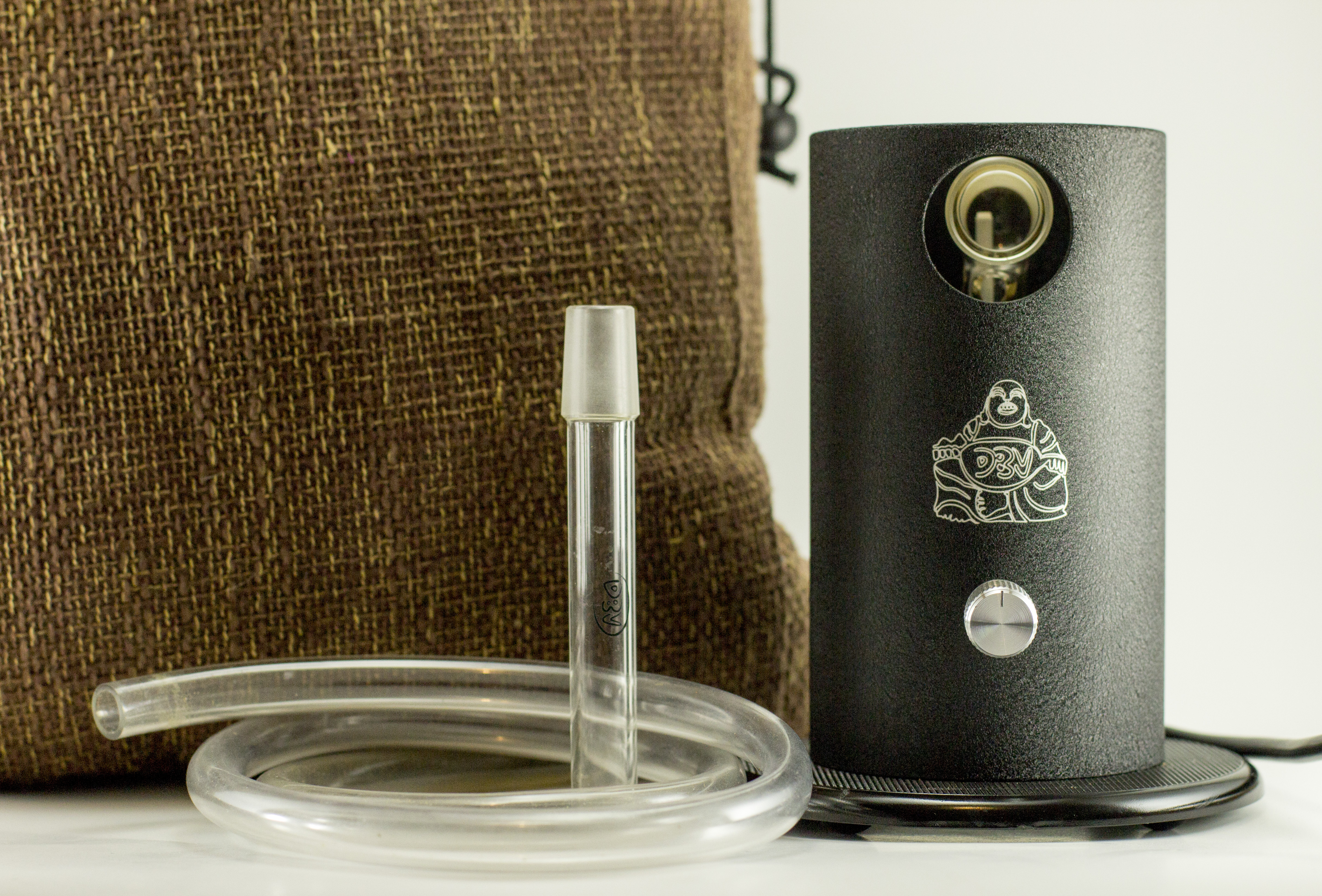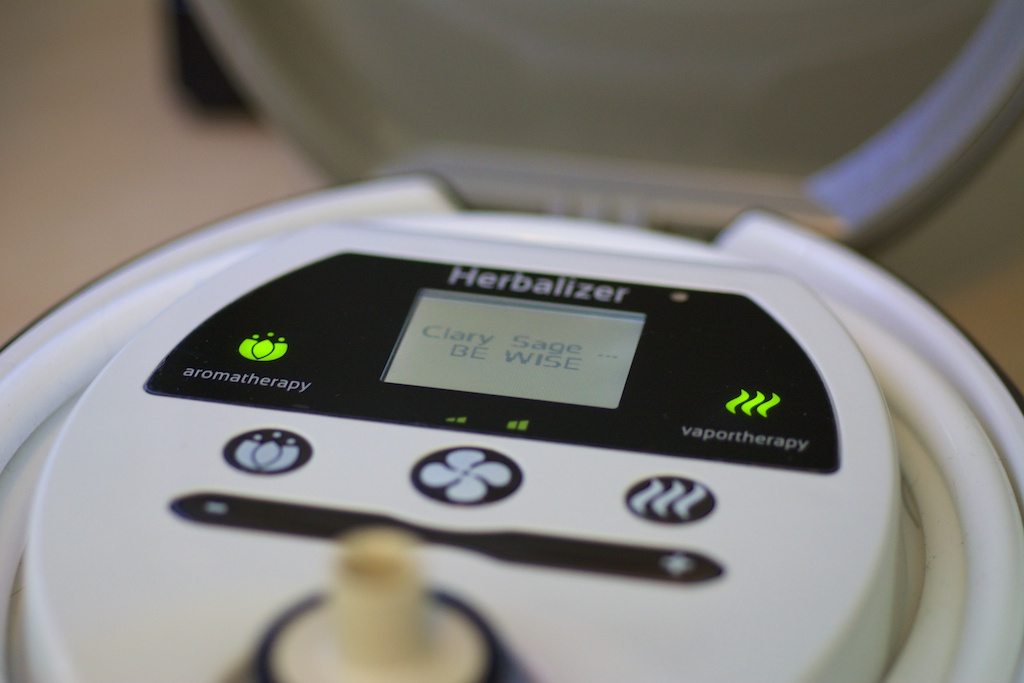Space Grinders is one of the oldest names in the herb grinder industry. While I can’t say for certain if they pioneered the diamond shaped grinder teeth, the Space Case grinder has the quintessential diamond tooth design that all other diamond teeth grinders strive to mirror.
What separates the Space Case from other diamond tooth grinders is the quality of the grinder as a whole. The quality of the magnet, threading, pollen sifter mesh, and finish all contribute to the overall performance of a grinder, and the Space Case doesn’t skimp in these departments.
Components
First off, the model I tested was the Space Case Titanium Medium 4-piece grinder. Its important to note that size convention differs between manufacturers, a medium space case may be akin to a large grinder by another manufacturer. The medium 4-piece measures 2.5 inches in diameter and is 2 inches tall. Each grinder piece is machined out of a solid piece of aluminum, not titanium, and is anodized with a titanium oxide additive. The added titanium oxide makes the anodized finish harder and more resilient than a standard anodized finish, leading to less scratches and scuffs.
A magnet that holds the top of the grinder in place, but still allows for free spinning, passes the basic “if I pick up the grinder by just the lid will it come apart?” test, which lower quality grinders frequently fail.
The threading on the Space Case does a fine job at catching correctly and spins smoothly when there are no herb or pollen deposits coating the threads. When clean the three threaded pieces of the Space Case screw together in a very fluid motion that speaks highly of the manufacturing quality. When dirty however, the grinder pieces stutter and lock up, forcing you to unscrew a quarter turn and try again. While its possible to keep using the Space Case with gummed up threads, I prefer to keep mine clean with the occasional alcohol soak or even some periodic brushing of the threads before they get too gummed up with my Magic-Flight brush.
The mesh that separates the herb collection chamber (chamber 2) from the pollen chamber (chamber 3) is not user replaceable. The trade-off to a non user-replaceable mesh is a tight fit that keeps the mesh taught and firmly in place. The mesh is fine enough to let most pollen particles through, but still prevents small debris from being collected in the pollen chamber.
Diamond Teeth
As far as straight diamond shaped teeth go, the Space Case grinder has an incredible set of teeth that can slice through some of the toughest stems with ease. That being said, most grinders will perform well when new, and only show their true colors with age. Even with frequent use, the Space Case teeth continue to maintain their precise edge, while other grinders may begin to accumulate nicks and burrs on the teeth. I have not had any issues with chipping, scratching, or flaking metal as can sometimes be frequent with lower cost, lower quality grinders.
The next big contender to the Space Case is other high quality non-diamond tooth brands such as the Santa Cruz Shredder. While the two are both high quality grinders from reputable manufacturers, they apply two different philosophies to the grinding process. The Santa Cruz Shredder’s box shaped teeth do a better job at moving the herbs around while they’re being ground up, the end result is a fluffier grind that is ideal for vaporizing. The Space Case’s diamond teeth on the other hand can easily grind up stems and dense herbs that may lock up other grinders.
Verdict
I can’t tell you if the Space Case is the right grinder for you, but I can tell you that its a high quality grinder and a top performer among the diamond tooth grinder competition. Personally I like to grind my dense or stubborn herbs in the Space Case grinder first, then move the already ground herb to my Santa Cruz Shredder for round 2.
The Space Case Grinder selection can be found at SpaceGrinders.com and comes in a variety of sizes and configurations.

